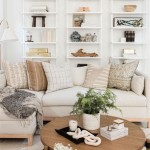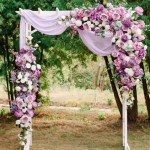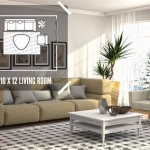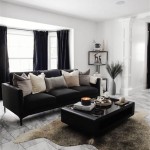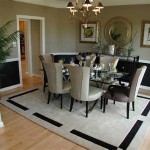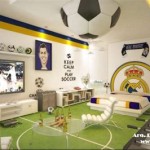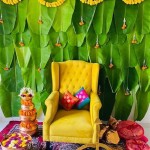Retro Style Home Decor: A Nostalgic Journey Through Time
Retro home decor has emerged as a popular trend, capturing the essence of past decades and infusing homes with a touch of nostalgia. This style embraces elements from the 1950s to the 1980s, evoking a sense of familiarity and comfort while adding a unique touch to any living space.
Defining Retro Style
The term "retro" encompasses a wide range of design influences, from mid-century modern to the Memphis Group. However, some common characteristics unify these distinct aesthetics, including:
- Bold colors and geometric patterns
- Organic shapes and exaggerated curves
- Use of materials such as plastic, vinyl, and chrome
- Emphasis on functionality and simplicity
Incorporating Retro Elements
Integrating retro elements into your home decor can be achieved through various methods:
- Furniture: Invest in iconic pieces from the past, such as Eames chairs, Tulip tables, and vintage sofas with plush upholstery.
- Lighting: Opt for statement light fixtures like bubble chandeliers, Sputnik lamps, and lava lamps that emanate retro vibes.
- Accessories: Incorporate retro-inspired accessories such as geometric wall art, funky textiles, and vintage vinyl records to create a cohesive look.
- Color Schemes: Embrace bold color combinations, including earthy tones like mustard and olive, bright pops of orange and pink, and muted pastels.
- Wallcoverings: Introduce retro-style wallcoverings featuring geometric patterns, floral motifs, or vintage advertisements to add a touch of whimsy.
Specific Retro Styles
Within the broad spectrum of retro home decor, several distinct styles stand out:
- Mid-Century Modern: Characterized by clean lines, organic shapes, and a focus on functionality. Iconic pieces include the Hans Wegner Wishbone Chair and the Eero Saarinen Tulip Table.
- Art Deco: Known for its geometric patterns, bold colors, and lavish ornamentation. Art Deco furniture often features angular shapes and luxurious materials.
- Memphis Group: A postmodern style that emerged in the 1980s, characterized by bright colors, eccentric patterns, and a playful disregard for conventional design rules.
- Retro Futurism: Influenced by the optimism and technological advancements of the 1950s and 1960s. Retro futurist interiors feature metallic accents, geometric shapes, and a sleek, streamlined aesthetic.
Benefits of Retro Home Decor
Incorporating retro elements into your home decor offers numerous benefits:
- Nostalgia and Sentimentality: Retro pieces evoke a sense of nostalgia and connection to the past, creating a comforting and familiar atmosphere.
- Unique and Eclectic: Retro styles offer a unique and eclectic way to express your personality and create a distinctive living space.
- Timeless Appeal: Many retro designs have stood the test of time and continue to be appreciated for their aesthetic value and functionality.
- Sustainability: Choosing vintage or retro pieces over mass-produced items can promote sustainability and reduce waste.
- Investment Potential: Some iconic retro furniture and accessories can appreciate in value over time, making them a wise investment for home enthusiasts.
Conclusion
Retro home decor transcends time, blending elements from the past to create a nostalgic and unique living space. Whether you incorporate vintage pieces or embrace retro-inspired designs, this style offers a way to infuse your home with character, individuality, and a touch of the past.
Retro Interior Designs The Nostalgic Style Design Cafe
20 Retro Home Decor Ideas Tips For Style With Latest S
Retro Living Room Ideas And Decor Inspirations For The Modern Home Decoist
The Ultimate Guide To Retro Decor
Retro Interior Designs The Nostalgic Style Design Cafe
How To Get A Retro Style Inside Your Home In 2025 Gallery Wall Living Room Colourful Decor
Vintage Decor 20 Retro Designs To Revisit Bob Vila
20 Retro Home Decor Ideas Tips For Style With Latest S
Retro Interior Design Style Guide With Expert Knowledge On All Things
Retro Interior Designs The Nostalgic Style Design Cafe
